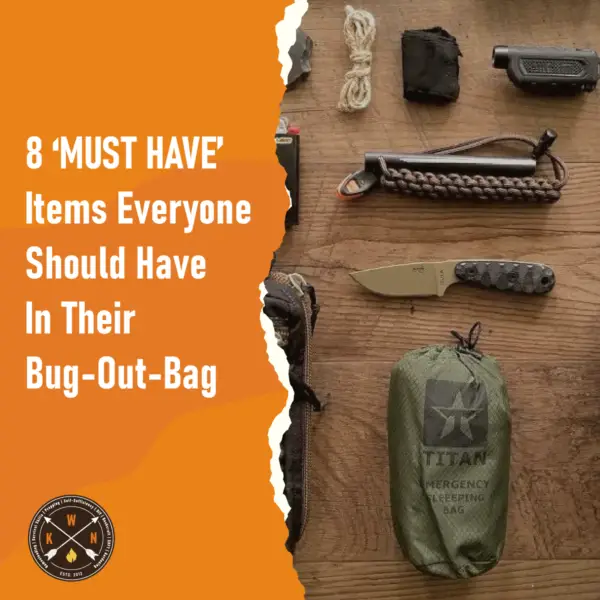
The thought of a natural disaster or some other catastrophic event is not one many enjoy meditating on; however, in our modern society, this is a very real threat. To protect your family, and yourself, it’s essential to begin preparing for the worst. While there are many ways to accomplish this goal, the easiest, and most effective in emergencies, is known as a Bug Out Bag.
Bug Out Bags are filled with essential items to keep you safe and protected during an emergency situation. There are many items that may be used, but the following are necessary for any Bug Out Bag.
(Loads of people have asked what bug out bag we use and recommend. We use and highly recommend the 5.11 3 Day Rush Backpack. It is absolutely amazing and given what it costs it’s a steal. We also like that it comes in a range of colors. We chose the black version as you look a lot less like a prepper/survivalist (with loads of gear worth acquiring!), than you do if you go for the usual military colors.)
Table of Contents
ToggleMap and Compass
What would happen if your smartphone turned not-so-smart due to a lack of electricity or data signal? Being able to find your way around your immediate area could mean the difference between escaping from harm’s way or walking directly into it. Therefore, a current map and compass are essential for every Bug Out Bag.
TIP: Enhance your survival skills by learning how to effectively use a compass and read a variety of maps.
Pocket Knife or Multitool
As pocket knives and multitools are so useful for work and day-to-day activities, it should be obvious how useful they would be in an emergency scenario. My personal preference is for a good quality medium sized Leatherman multitool, as they are well made, durable and have numerous uses in survival scenarios. Many people will argue that a fixed blade knife is preferable over a multitool, but not everyone is comfortable or proficient with fixed blade knives. There are pros and cons to each, but for everyday folk, I am going with the multitool. By all means, carry both!
LED Flashlights
Flashlights are essential to finding your way in darkness as well as flagging for help. Traditional flashlights aren’t acceptable due to their short battery life and dim light beam. Enhance your ability to navigate during the night by storing a fresh LED flashlight in your bag. For maximum benefit, gather a large and small flashlight to illuminate a variety of situations. You should also store a few sets of backup batteries too.
Tarp for Emergency Shelter
If you’ve escaped traditional shelters, such as homes or buildings, tarps offer lightweight protection from the elements. Choose a brightly coloured tarp, which may be used as a location device when you’re lost in heavily wooded areas (unless your goal is not to be found, in which case choose camo). Of course, the tarp must be accompanied by several ropes. Paracord is vital for securing tarp shelters to trees etc, and it also has many other survival uses as well.
Various Fire-Making Items
Being able to make fire is among the most important elements of survival. Therefore, all Bug Out Bags should contain at least two methods of starting a fire. While matches are common,
gusts of wind of an unexpected rainfall could render these pieces of wood useless. If you must use matches, waterproof lifeboat matches offer the greatest resilience. Include a fire piston, flint and steel or a magnesium fire starter. Make sure to include an accelerant, such as cotton balls soaked with petroleum jelly.
Water Filtration Items
In cases of emergency, clean water may become scarce. Prevent yourself from drinking water of unknown quality by including a water filtration system of some sort. Personal straw filters and
carbon water purification tablets effectively purify water in emergency situations. Enhance your survival ability by learning how to purify water using natural methods.
Extra Clothing Items
Being stranded or having to escape a dangerous situation with only the clothes on your back is a recipe for disaster. The amount of clothing you should pack depends on the size of your Bug Out Bag. Regardless, keep several changes of socks, several shirts, some extra pairs of underwear, a lightweight down bodywarmer and a lightweight waterproof jacket.




